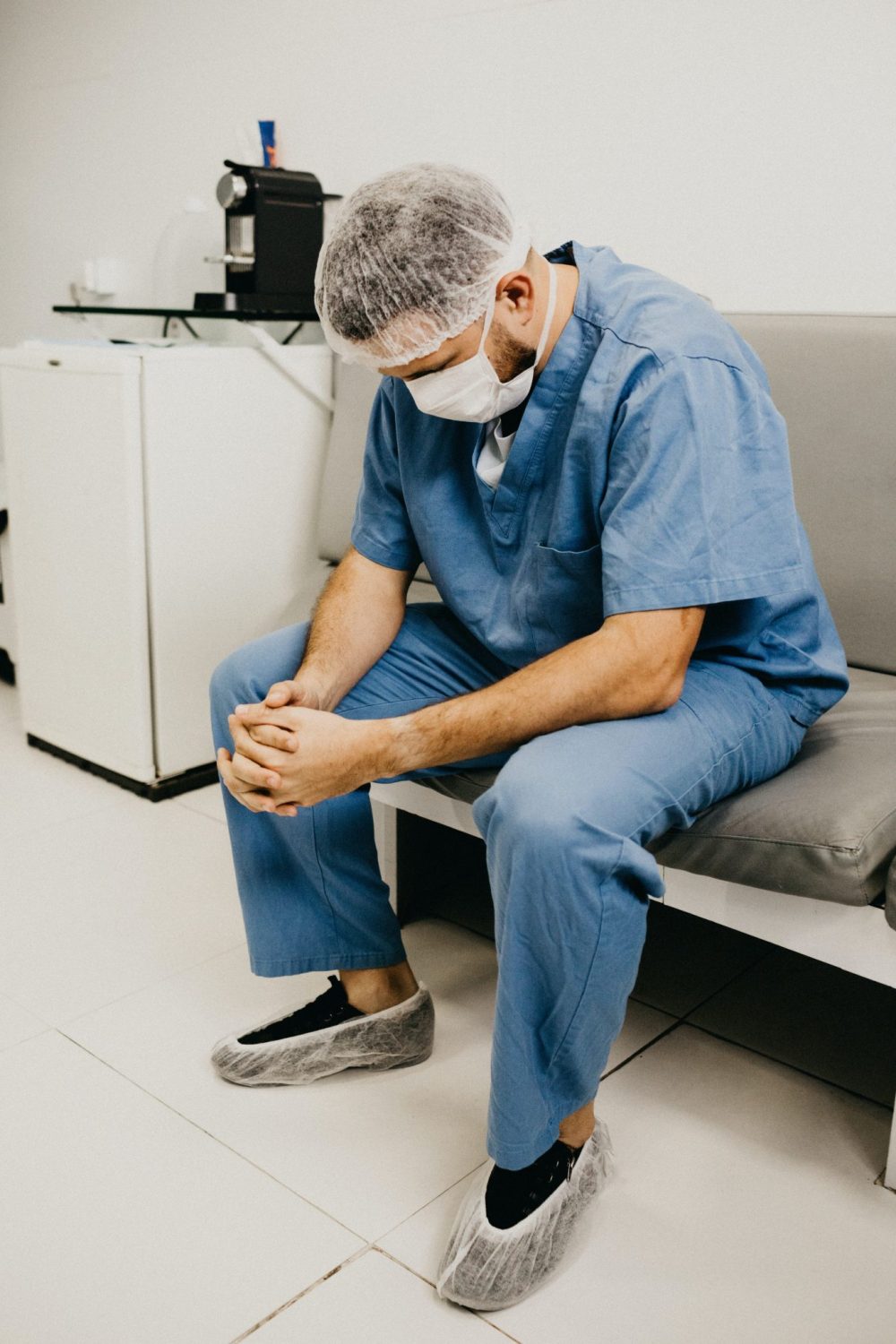Those working and staying at a hospital for more than a few days can experience stress, anxiety, and exhaustion after witnessing the depressing scenario that involves sick and injured people being brought in, but these 5 Ways Hospital Employees Can Relieve Stress And Anxiety!
5 Ways Hospital Employees Can Relieve Stress And Anxiety
For health workers, it's even worse seeing the constant pain of patients, the helplessness of families, and the ongoing struggle between life and death. These scenarios are enough to scare any sane person, which is why not everyone can choose a career in medicine.
Hospital employees spend most of their lives in hospital wards, dealing with life-and-death situations, and helping their patients cope with pain and life-threatening illnesses. While patients can scream or cry to express their pain and helplessness - hospital employees and doctors can't do that. Instead, they must be strong and understand their patients' toil.
This can cause long-term issues with health workers because bottling emotions like stress and anxiety aren't good for anyone. One should always seek ways to relieve stress and anxiety to save themselves from future problems.
With that said, here are some tips for hospital employees to relieve their stress and anxiety.
1. Group activities at the Hospital
The CEO of a medical institution should ensure that employees are taking care of themselves to set an excellent example for others. Group activities can be great stress and anxiety relievers. This is where a hospital CEO can ensure employees are content in their working environment.
Group activities with fellow employees help strengthen bonds among employees to create a strong team where everyone shares responsibility.
Simple and creative activities like painting, exercise, or discussions to express concerns and figure out solutions to common problems can help hospital employees get out of their fast-paced lives and help them slow down a little bit to enjoy the simpler things of life.
2. Take the pressure off your shoulder
Most hospital employees, especially doctors, will deny taking stress, but deep down, they are guilty of taking too much pressure while saving their patients. At some point, even doctors get emotional and feel helpless when treatment yields no results.
At these times, all medical workers should keep their heads above their hearts and remember you are life savers, not life-givers. This simple tip will help relieve stress and anxiety and assist you in the long run.
3. Avoid working for extended hours
While joining the medical profession, it is often instilled that health practitioners don't have a life and must be on duty 24/7. This is the wrong approach.
Doctors and nurses often work 16+ hours in one day with little to no rest, especially in an emergency. This lack of rest can compromise the doctor's and the patient's health. The ability to make a decision that concerns a patient's well-being is affected to a point where the doctor can make a mistake.
Wrong decisions in medicine can result in a patient losing their life and the doctor losing their license to practice.
When this information is instilled, a medical worker's family, hobbies, and relaxation hours take a backseat. Furthermore, health workers should not be denied public holidays and extensive working hours to cut costs.
Most hospital administrators take it upon themselves to save hiring costs, putting health workers on extended shifts. These extensive hours put unnecessary pressure on them, compromising their mental and physical well-being.
4. Adopt healthy lifestyle
The life of a health practitioner is fast-paced. Due to long hours and extensive treatment tenures, it is difficult for them to adopt a healthy lifestyle where they have healthy meals throughout the day to keep themselves energetic.
At the same time, it is not impossible either. Relaxing physical activities like walking in the garden or listening to music are excellent ways of relieving stress.
Lack of physical activity triggers stress, compromises immunity, and increases anxiety. That's why switching to a healthy lifestyle is a great idea for starting a life where you are mentally and physically fit.
5. Learn to relax and unwind
Sometimes it is best to take a break from work and relax in a place where it won't haunt you. To get more time to relax, it is recommended to either meditate or exercise to calm your mind and body. You can even opt for a massage session to relieve soreness and meditation sessions to help relieve stress from your mind.
Many studies link high stress and anxiety to weight gain, heart problems, and weakened immune systems. One of the best ways to recharge and manage stress is to go on a vacation. Since health workers have extremely taxing work schedules, they should learn to manage their lives by staying away from work altogether – even if it is for a week.
For fun, most health workers opt for more family time, while some even consider pottery and gardening to help their minds relax and forget about work.
To cope with stress, you should also engage in healthy activities that include hobbies you were not paying attention to. You can also spend time in nature and go camping.
These relaxing activities will help recharge your mind and prepare you for what is ahead, even if it involves treating multiple patients at one time.
5 Ways Hospital Employees Can Relieve Stress And Anxiety
Life as a health worker is not easy. At times, health workers get attached to patients and feel bad when they cannot relieve their pain or treat them. These circumstances damage their physical and mental health, especially if they don't care for themselves.
The tips mentioned above should help relieve anxiety and highlight the importance of health workers. Group activities will help hospital employees bond with each other and is an excellent way of developing cohesion within a team.
Since hospital employees have a lot of responsibility - even the slightest issue or progress in their patient's health can decide their mood. They should understand that all they can do is help patients recover, but they cannot save them from the inevitable (if there's no treatment).
Health workers must learn to accept what they can change and have the serenity to accept what they cannot. They should be more resilient if they want to focus on themselves and adopt a healthier, happier life.








Leave a Reply